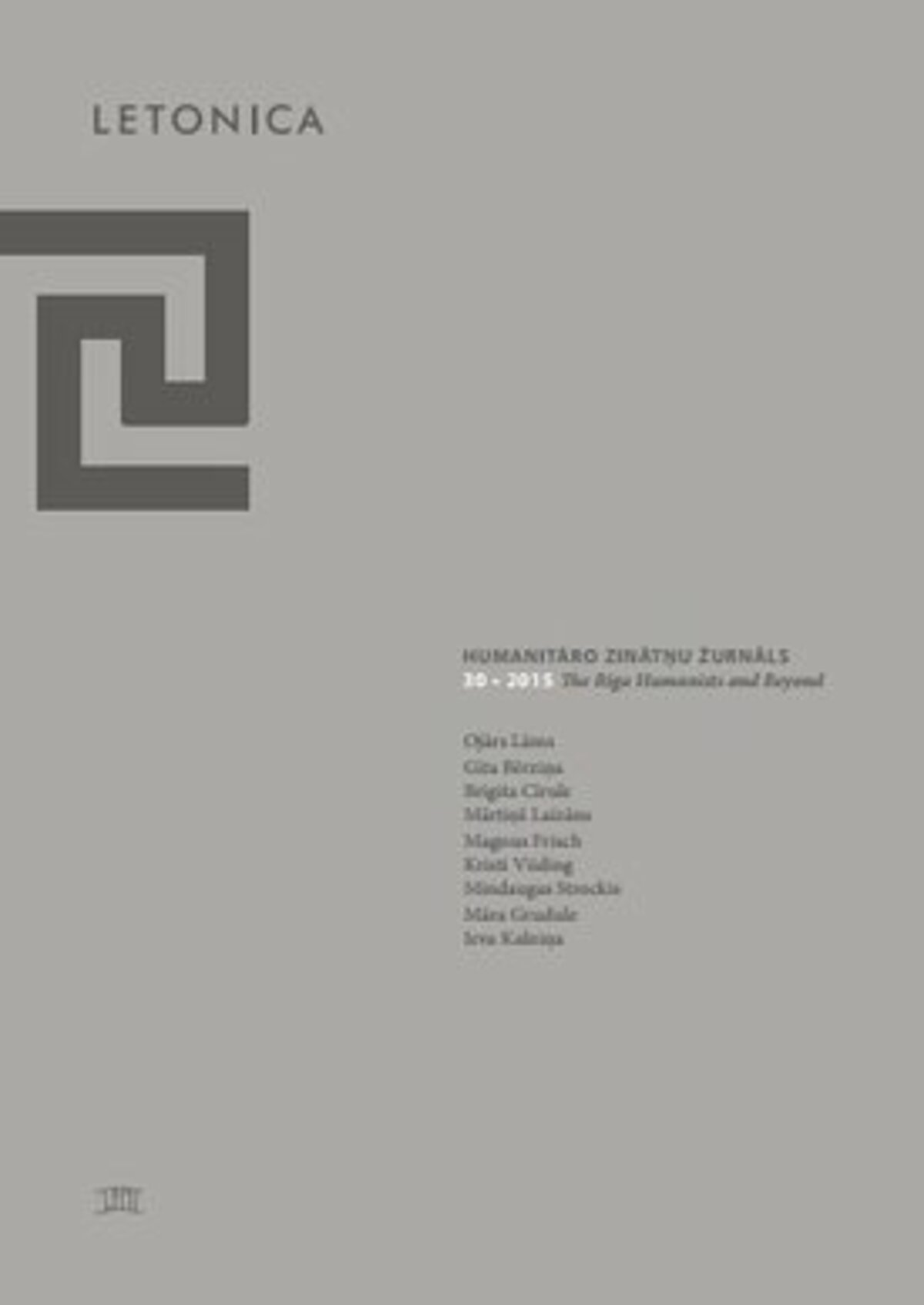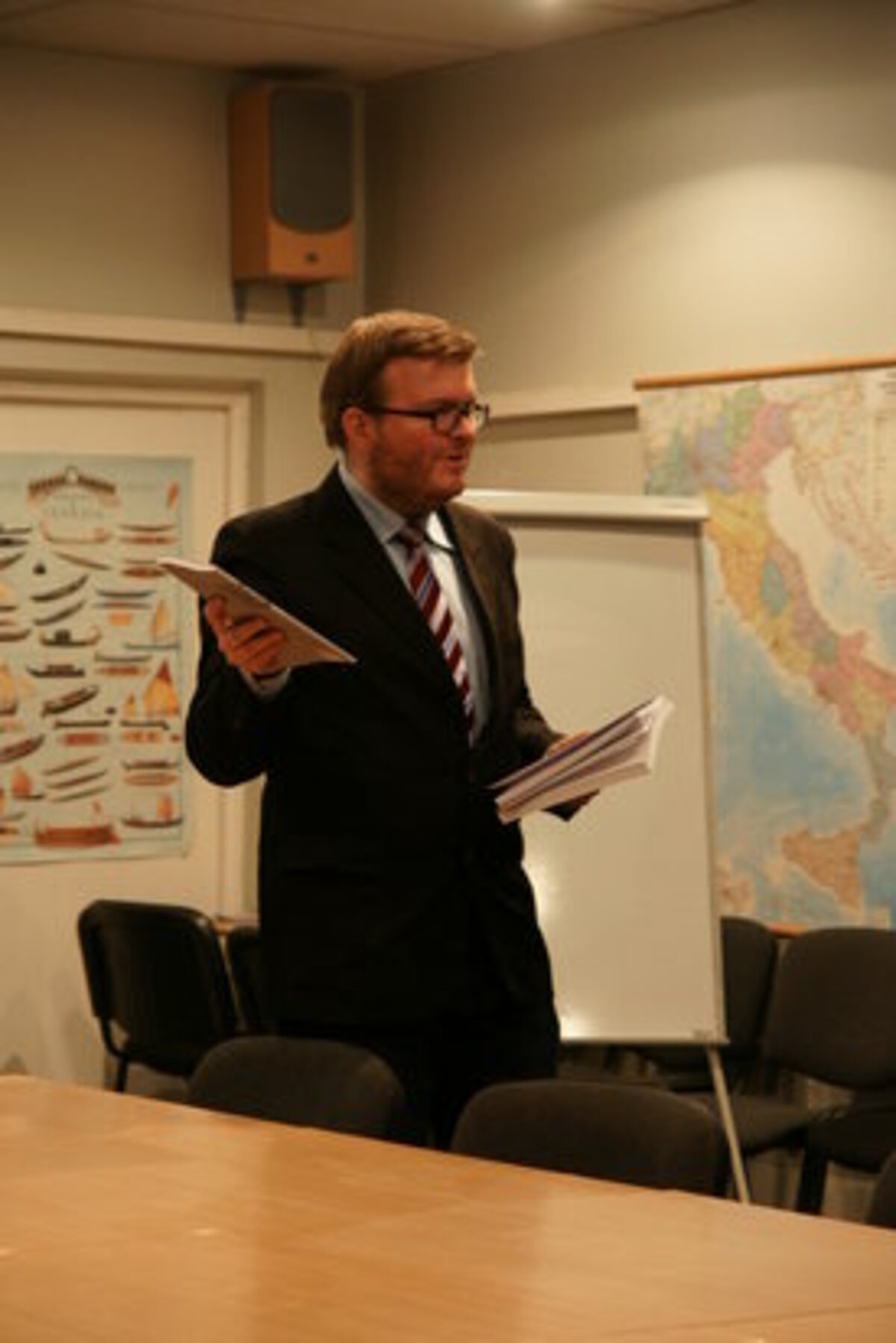
The activities of Riga Humanists, their Neo-Latin literature that express the intellectual milieu of Latvia in the 16th and early 17th centuries sets firm the adherence to European values in the region, developing the cultural and educational environment for the first generation of authors writing in Latvian. The contribution of Riga Humanists has not been disregarded in earlier studies on Latvian cultural history, though their texts, lives and work have not been studied profoundly enough.
The special issue of “Letonica”, published by the Institute of Literature, Folklore and Art of the University of Latvia (ILFA UL), sets ground for a systematic research tradition to come on the subject of Riga Humanists.
As professor Kristi Viiding from University of Tartu notes: “This issue will be the basis and starting point for everyone willing to study humanism in Riga.” Editor-in-Chief Pauls Daija, expressing his satisfaction of the the successful cooperation between ILFA and the Faculty of Humanities (UL), says: “A strategic objective is to promote interdisciplinary dialogue, and to include Latvian humanities into the global scene. This issue, thanks to the Faculty of Humanities and particularly to professor Ojārs Lāms, is to be considered an important event to promote the cooperation between the departments of UL and to include studies from Latvia in the international scholarly dialogue.”
Scholars from four universities have participated in the preparation of this issue – University of Marburg, University of Latvia, University of Tartu and Vilnius University. The authors are: Gita Bērziņa, Brigita Cīrule, Magnus Frisch, Māra Grudule, Ieva Kalniņa, Mārtiņš Laizāns, Ojārs Lāms, Mindaugas Strockis, Kristi Viiding.
The issue is divided into two thematical sections – one is the studies on Riga Humanists, providing a thorough description of the times and lives of particular individuals (e.g., Daniel Hermann, David Hilchen, Basilius Plinius and Augustinus Eucaedius). The other one studies the impact of their ideas and work in the first examples of Latvian poetry, in the Latin lexicography in the Baltics, and further evolution of educational traditions in Riga.
The issue is supplied with extensive visual material for a better apprehension of the topics described in the articles thanks to Aija Taimiņa, the Head Librarian of The Department of Manuscripts and Rare Books of The Academic Library of the University of Latvia.
This issue is published with the support of State research programme “Letonica” and State Culture Capital Foundation (SCCF). The studies published were firstly delivered as presentations during the conference “The humanists of Riga and the cultural heritage of Antiquity: texts and contexts. Colloquium Balticum XIII Rigense”, supported by UL, Riga City Council, SCCF, The Baltic-German University Liaison Office and the foundation Rīga 2014. The presentations held during the project were part of the official programme of European Capital of Culture – Rīga 2014.
The issue was presented to a wider audience during the 74th conference of the UL in the section “Scholarly periodicals of Latvian Studies. Topicalities and perspectives.”
You can acquire Your copy of the issue for a friendly price at the ILFA Press (at the National Library of Latvia by calling the number +371 67229017 or by contacting the Editor-in-Chief Pauls Daija via e-mail pauls.daija@lulfmi).

 CONFERENCE
CONFERENCE